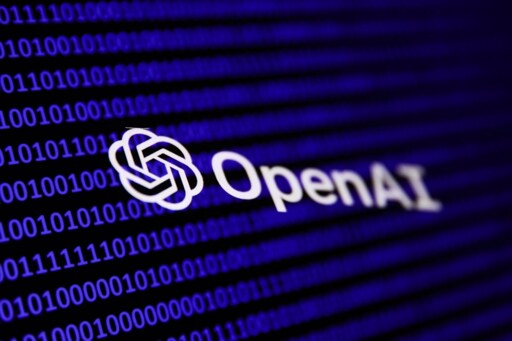- 17 Posts
- 22 Comments

 61·6 days ago
61·6 days agoWikipedia Simple has fewer articles than regular Wikipedia.


And how do you plan to convince editors to add more articles to Wikipedia Simple?

 2·7 days ago
2·7 days agoIf an AI can emulate Renaissance Technologies’ Medallion Fund and do so on a large scale in the future, that would be a great step forward, but only a few would be able to do so.

 1·8 days ago
1·8 days agoLook, I don’t understand whether they want states’ rights or not. Because one moment they’re in favor of the federal government having power, and the next they’re in favor of the states having power.
Because if they want states to have power, they should only be concerned with things that affect their state. If another state makes bad decisions, we can only hope that its population corrects those mistakes as quickly as possible.
Or if they want the federal government to have power, everyone should be informed of changes, both the population and the states. These laws should benefit the majority.
There is also a third option: there should be a balance between state and federal power.

 21·8 days ago
21·8 days agoIf AI starts to yield excellent results for its military uses, we can say that the current and future regulations at the federal, state, and municipal levels will be overturned.

 93·9 days ago
93·9 days agoGovernments and companies are probably going to spend a lot of money on weather manipulation.

 3·9 days ago
3·9 days agoIn fact, simple computer programs do a great job of solving these puzzles…
If an AI is trained to do this, it will be very good, like for example when a GPT-2 was trained to multiply numbers up to 20 digits.
https://nitter.net/yuntiandeng/status/1836114419480166585#m
Here they do the same test to GPT-4o, o1-mini and o3-mini

 12·9 days ago
12·9 days agoIf the situation gets dire, it’s likely that the weather will be manipulated. Countries would then have to be convinced not to use this for military purposes.

 142·9 days ago
142·9 days agoThey need to convince investors that this delay wasn’t due to incompetence. The problem will only be somewhat effective as long as there isn’t an innovation that makes AI more effective.
If that happens, Apple shareholders will, at best, ask the company to increase investment in that area or, at worst, to restructure the company, which could also mean a change in CEO.

 5·10 days ago
5·10 days agoI understand that Peter Thiel doesn’t like being in the public eye or being recognized. On the other hand, with Musk and Trump, they’re so addicted to attention that they do so many stupid things to get it.
Sam Altman would be one of Peter Thiel and Musk.

 19·10 days ago
19·10 days agoPeter Thiel is enjoying the White House spectacle because no one is criticizing him.

 1·11 days ago
1·11 days agoWell, if classified information from government agencies comes to light in this case, there will be problems. Also important companies.

 4·11 days ago
4·11 days agoThe only problem I see is that such storage could conflict with EU privacy laws, but the rest is normal.

 772·14 days ago
772·14 days agoManaging a federated network comes with a lot of responsibility.

 141·17 days ago
141·17 days agoVery well, now we just need blue blood to have our Detroit.


 11·17 days ago
11·17 days agoI don’t know how Lemmy users would react if Helion Energy achieves its goal before 2028.

 2·18 days ago
2·18 days agoIt’s basically how any business starts today, whether it’s computers, the internet, or the industrialization of processes.
AI is undergoing the same product life cycle, which is divided into four stages. In Stage 1, a company has a novel product, and it’s the only one, so the price is usually very high and profits are higher.
In Stage 4, there’s fierce competition; the novel product is now available to many companies, the price is usually cheap, and profits are low. Technology companies look for developing sectors to stay in Stage 1 as much as possible and avoid reaching Stage 4.
AI may be between Stage 1 or 2, or perhaps Stage 3 of the product life cycle. Stage 4 is still a long way off, and we’ll only say we’re in that stage if AI becomes very cheap and very common in society.

 1·21 days ago
1·21 days agoAre you referring to projects that conceptualize something, but in the end it doesn’t come to fruition because it’s not possible due to lack of funding, lack of interest, it’s impossible, or there’s no technology required to complete it?

 12·21 days ago
12·21 days agoWhy do I feel like this article is a paid advertisement for Anthropic?

 21·21 days ago
21·21 days agoThis has happened with every generation when a new technology changes our environment, and our way of defending ourselves is to reject it or exaggerate its flaws.
Because throughout history, many tools have existed, but over time they have fallen into disuse because too many people and/or there is a faster method that people use. But you can use that old tool.










I leave you a link to a post by Nitter
https://nitter.net/Nintega_Dario/status/1932866497606500734